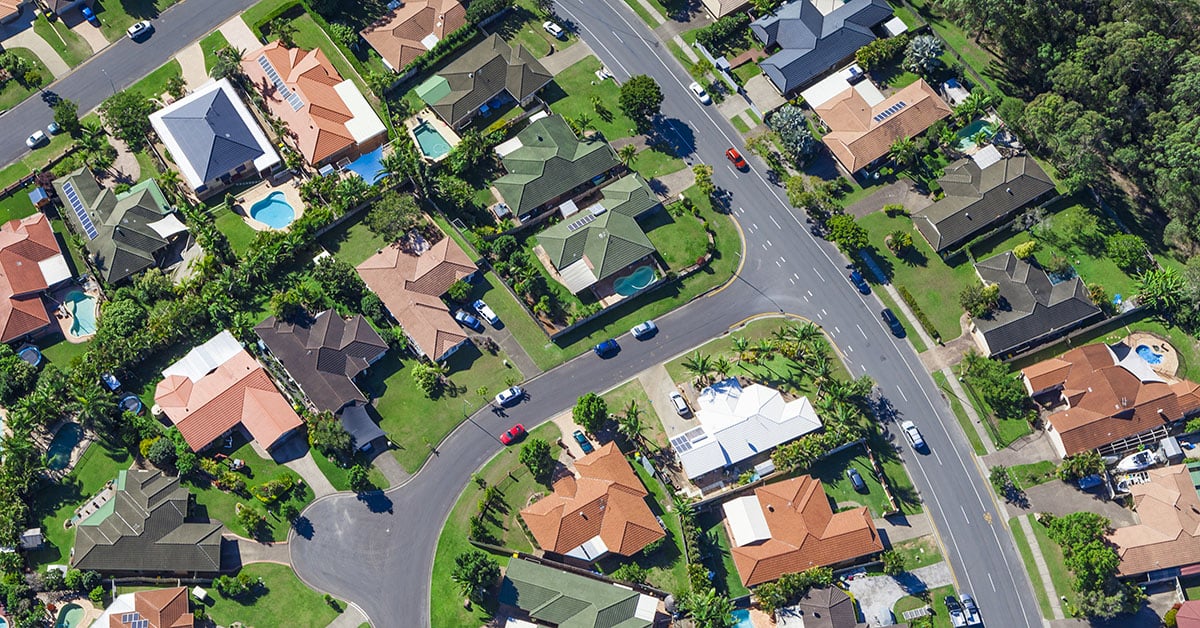A Guide to Landlord Insurance: What It Covers And Why It's Important

Owning a rental property necessitates more than standard home and contents insurance, as these policies may not provide the comprehensive protection required for your investment. In this guide, we will outline what landlord insurance is, what it typically covers, and its role in safeguarding your investment property.
What is landlord insurance?
Landlord insurance is a specialised policy designed to protect owners of investment properties. It provides coverage for unforeseen events that may impact the property or rental income, including theft, property damage and tenant rent default.
Most general insurance providers in Australia offer landlord insurance, applicable to all types of investment properties, including houses, apartments, units, or townhouses. These comprehensive policies typically integrate landlord, building, and contents insurance, providing coverage for property damage, loss of rental income, and damage to the landlord's contents within the property.
What does landlord insurance cover?
The scope of landlord insurance varies depending on the selected level of coverage. However, a standard landlord building or house insurance policy generally encompasses:
Tenancy cover
- Loss of rental income
- Damage or theft by tenants or their guests
- Rent default
- Legal expenses in the event that you have to take tenants to court
- Liability
Building cover
Building cover will protect against damage to the building structure (including pipes, cables, external awnings, external structures, gas and plumbing, and fixtures and fittings in the event of:
- Fire
- Lightning strikes
- Storm damage
- Flooding
- Tree falls
- Earthquakes
- Explosions
- Vandalism
- Impact damage (if a car crashes into the home or in the event of a break-in)
- Water damage
Contents cover
For furnished rental properties, additional contents insurance protects against theft or damage to the landlord's contents, such as appliances, furniture, carpets, curtains, and light fittings. This typically covers events such as:
- Fire
- Lightning strikes
- Storm damage
- Flooding
- Tree falls
- Earthquakes
- Explosions
- Vandalism
- Impact damage (if a car crashes into the home or in the event of a break-in)
- Water damage
Policyholders have the option to adjust their excess amount and include additional coverage for events such as appliance breakdowns, accidental damage, or civil unrest.
What is not covered by landlord insurance?
While landlord insurance provides valuable protection, property owners must be aware of specific exclusions. These typically include:
- Repairs conducted by tenants that result in property damage
- General wear and tear, including mould or peeling paint
- Structural building defects
- Contents and belongings owned by tenants
- Fluctuations due to market conditions
- Routine property management expenses, such as lawn maintenance or standard plumbing services
Do you need landlord insurance?
While landlord insurance is not a legal requirement, it represents a worthwhile investment to safeguard your property. Unforeseen incidents can occur, and if your property sustains damage or a tenant is injured on your premises, you may incur substantial costs for liability claims and necessary damage repairs.
As a landlord, there is also a very tangible risk of a tenant defaulting on their rental payments. Changes to life circumstances or financial difficulty during economic downturns can result in loss of rental income, which can affect your financial standing.
Landlord insurance will help cover these periods of income loss so that you do not have to.
Even reliable tenants make mistakes. Having landlord insurance minimises risk for everyone and saves any emotional and financial stress during a tenancy.
Is landlord insurance worth it?
Insuring your rental property is a sensible investment for any property owner. One of the most significant benefits of landlord insurance is, of course, confidence in your property’s protection. Most tenants are sincere and want to do the right thing. However, accidents happen.
Whether due to natural disasters or unforeseen accidents, such as backyard cricket, property damage is always a possibility. Too often, uninsured landlords are left with significant costs and legal liabilities that could otherwise have been avoided. Landlord insurance acts as a safety net, protecting you, your property, and your tenants.
In addition, your insurance premium may be tax-deductible, so that you may be able to get your money back.
If you do decide to take out landlord insurance, be aware that there are several policies available, and not all are the same. For this reason, make sure to take some time comparing landlord insurance policies before committing to a specific plan.
How to find the best landlord insurance
The most suitable landlord insurance for your investment property is contingent upon your specific circumstances and required coverage. Key considerations include:
1. Coverage requirements
Determine what coverage is most important to you as a property owner. For instance, you might focus on insuring your property against possible damage by a tenant or safeguarding against loss of rental income. If your property is in a disaster-prone area, you may want a policy that covers events like bushfires or flooding.
2. Insurance providersUse online comparison tools that allow you to compare landlord insurance providers and policies. Take the time to assess the provider’s reputation by reviewing their customer feedback, value for money, and the scope of coverage that is offered.
3. Compare the Product Disclosure Statement (PDS) against your needsOnce you have narrowed down your selection, carefully compare the PDS to your needs as a property owner. Pay close attention to coverage inclusions, exclusions, claim limits, and any extras or discounts offered.
4. Understand the claims processThe effectiveness of landlord insurance is not solely determined by the coverage provided; it also encompasses the provider's efficiency in managing claims during unforeseen events.
Review the provider's website to understand their claims handling procedures, and examine customer feedback to gauge satisfaction with their responsiveness and efficiency in managing claims.
Key Takeaways
- Landlord insurance provides essential protection for property owners, safeguarding investments against common risks such as tenant-induced damage, loss of rental income, and unforeseen incidents.
- Regardless of property type, landlord insurance can provide tailored coverage. Many policies integrate landlord, building, and contents insurance, offering comprehensive protection within a single plan.
- While not a legal mandate, landlord insurance is critical for mitigating financial risk and ensuring long-term security.
- To find the right fit, it’s worth comparing policies to ensure you get the level of cover that best suits your property and circumstances.
Learn more about property management with LJ Hooker
Landlord insurance provides essential protection for those managing investment properties. You have dedicated a lot of time and money to your property and, therefore, want to be confident that it is protected.
At LJ Hooker, our team can guide you through all the property management essentials, from investing to finding the best tenants and managing your property. Find a property manager today to get started.
Additional FAQs:
1. Is landlord Insurance tax-deductible?Yes. According to the Australian Taxation Office (ATO), any expenses related to the management and maintenance of an investment property are generally eligible for a tax deduction. This also includes your landlord insurance premiums.
When claiming a tax deduction for landlord insurance, the property must be rented or genuinely available for rent. Ensure you keep accurate records of your expenses to support your claims.
To ensure compliance and learn more about tax-deductible expenses, seek professional advice from your tax advisor.
2. Does landlord insurance cover building insurance?Landlord insurance typically includes building insurance and is specifically designed to protect rental properties. It covers the structure itself, any contents you provide as the landlord, and additional risks that are unique to leasing out a property, such as tenant-related damage or loss of rental income.
3. Does landlord insurance cover public liability?Landlord insurance also typically includes public liability cover, providing protection in instances where a tenant or guest sustains injury on your property and pursues compensation. This coverage can assist with legal fees and any court-awarded damages, offering crucial protection against potentially costly liability claims.
4. Does landlord insurance cover tenant damage?Yes, landlord insurance covers tenant-induced damages, encompassing accidental, intentional, and malicious acts. However, this coverage typically excludes general wear and tear. Therefore, a thorough review of your specific insurance policy's coverage is recommended.
Get a free rental appraisal with your local LJ Hooker property manager to make sure to maximise rental returns.
Book my free rental appraisalDISCLAIMER - The information provided is for guidance and informational purposes only and does not replace independent business, legal and financial advice which we strongly recommend. Whilst the information is considered true and correct at the date of publication, changes in circumstances after the time of publication may impact the accuracy of the information provided. LJ Hooker will not accept responsibility or liability for any reliance on the blog information, including but not limited to, the accuracy, currency or completeness of any information or links.
Share


